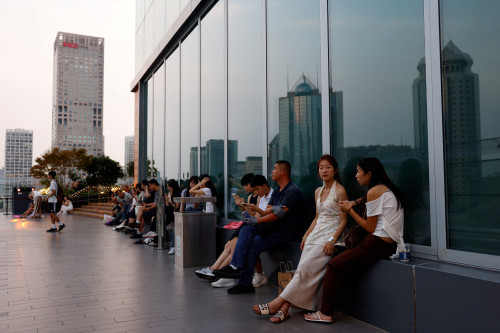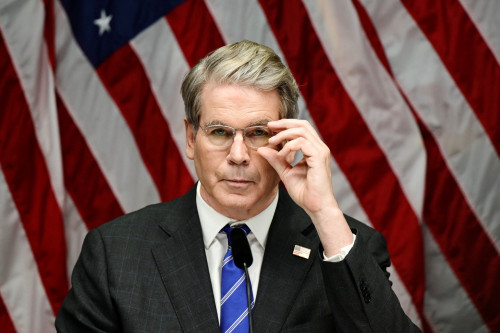KINSHASA (Reuters) -The spokesman for one of Democratic Republic of Congo’s main opposition parties was shot dead on Thursday, authorities said, raising tensions ahead of national elections in December.
Video shared on social media purported to show the bullet-ridden body of Cherubin Okende, a former transport minister who was also a member of parliament, slumped inside his car. Reuters has not verified the footage.
Firmin Mvonde Mambu, prosecutor general of the Court of Cassation, told reporters that Okende’s body was found in a car, secured with a seat belt, with the engine and air conditioning still running.
“Death came by gunshot. A gun was found on the passenger’s seat,” he said, adding that a suspect was currently being questioned.
Okende’s Ensemble pour la Republique party said he was kidnapped from the parking lot of the Constitutional Court in the capital Kinshasa.
A source close to Okende said the politician had just dropped off a letter in response to a court summons.
Government spokesman Patrick Muyaya described the death as an assassination and said on Twitter it was a shock.
Okende resigned from the government at the end of December when Ensemble party leader Moise Katumbi left the ruling coalition and announced his intention to run against President Felix Tshisekedi.
Political tensions have risen in the run-up to the vote. Katumbi’s adviser, Salomon Kalonda, was arrested at the end of May and charged with undermining state security over an opposition march that turned violent.
Kalonda, who was accused of bringing a firearm to the event, denies the charges.
The news of Okende’s death sparked small anti-government protests in Kinshasa, with demonstrators burning tyres and shouting “assassin”.
Katumbi called for independent investigations into what he described as an “odious crime”.
Tshisekedi urged the judiciary to “shed light on this case” and sent his condolences to the family, the presidency said on Twitter.
The EU ambassador to Congo and the United Nation’s peacekeeping mission in the country also condemned the murder.
(Reporting by Stanislas Bujakera, Sonia Rolley and Ange Kasongo; Editing by Anait Miridzhanian, Sofia Christensen, Andrew Heavens and Nick Macfie)




